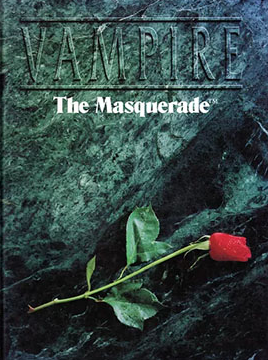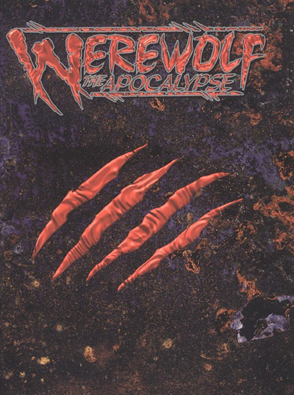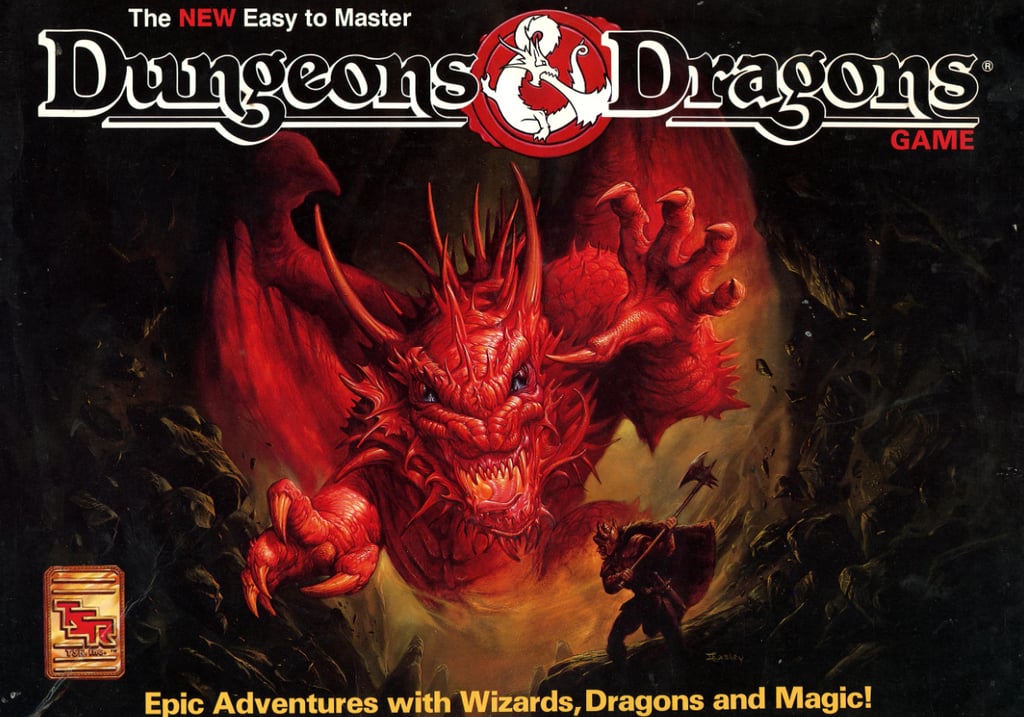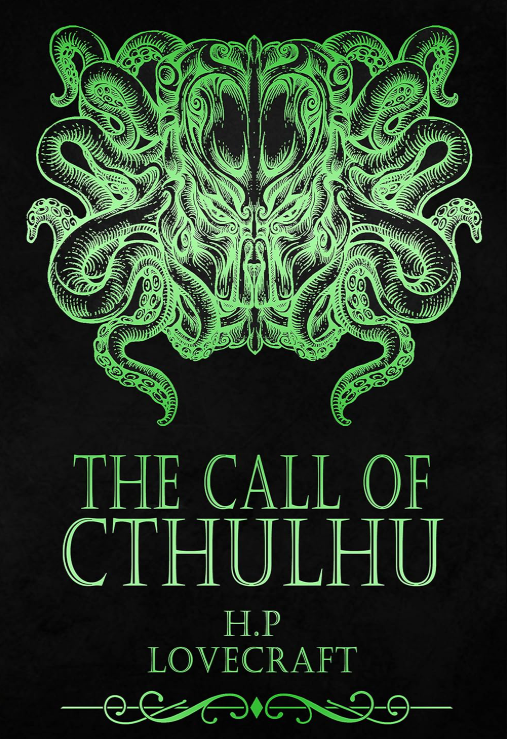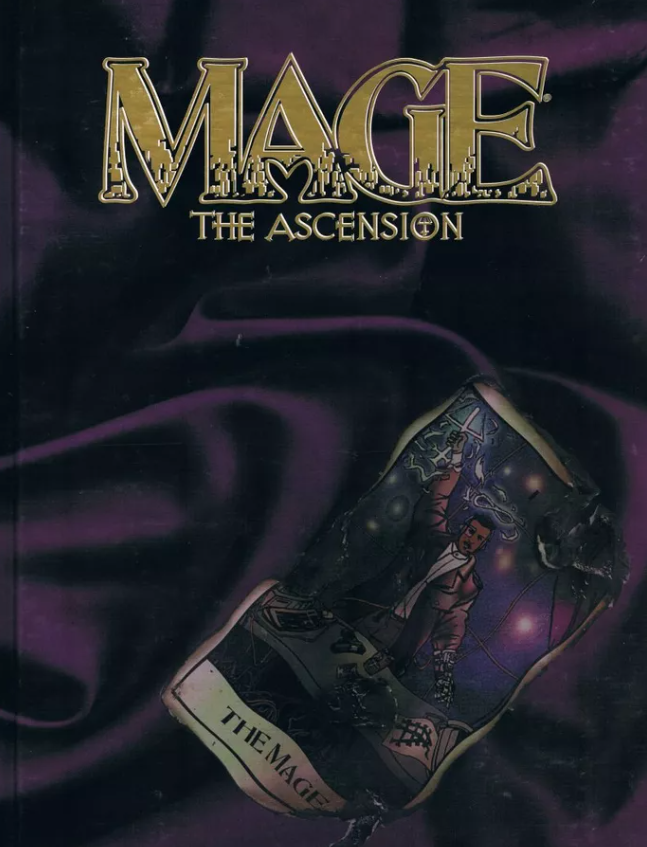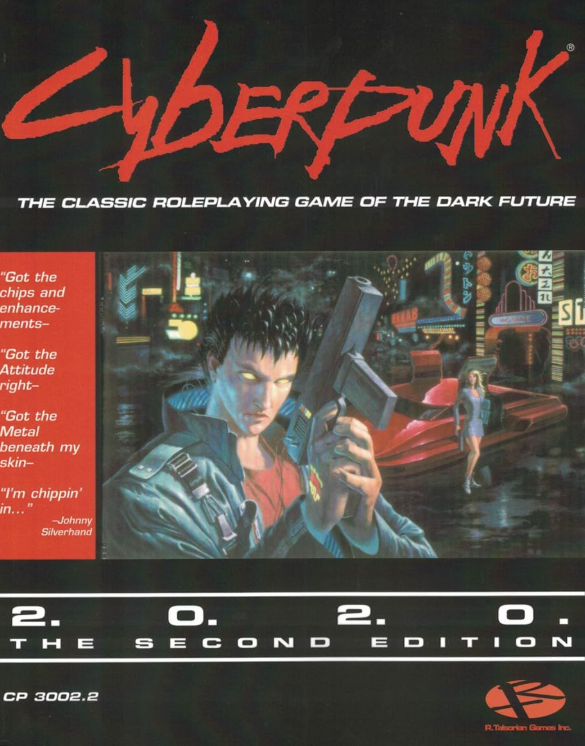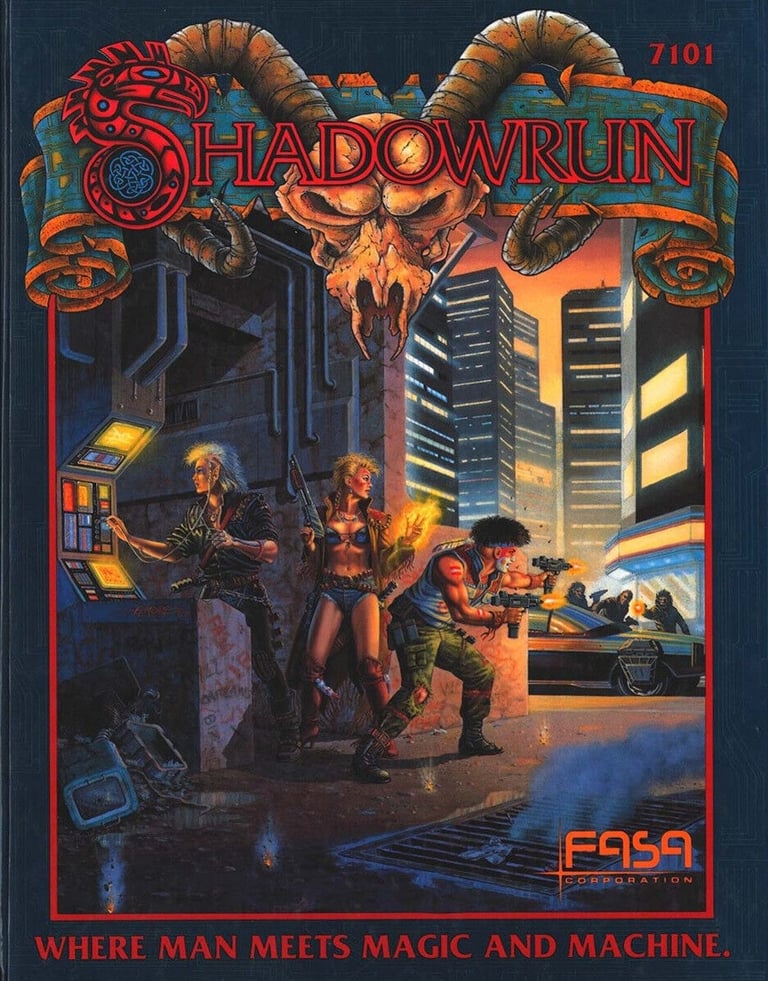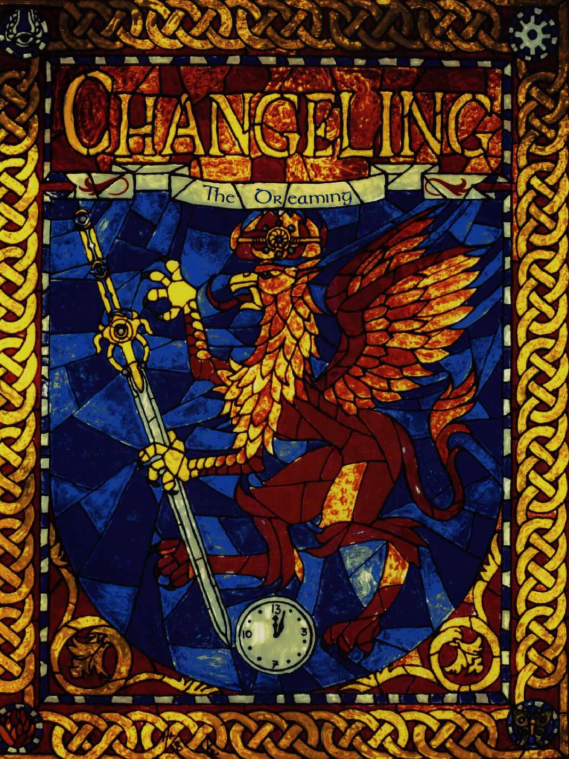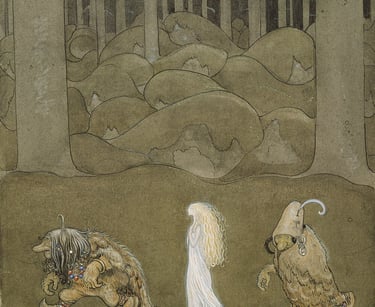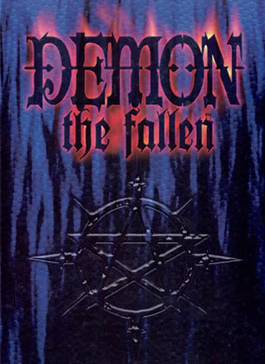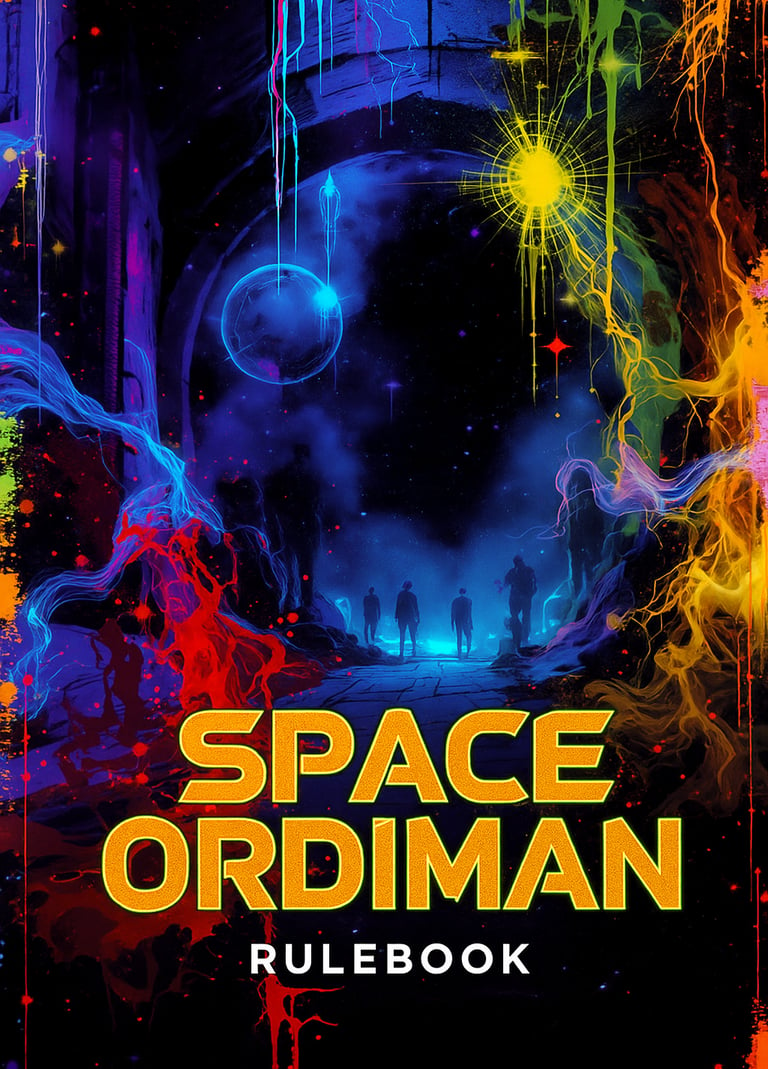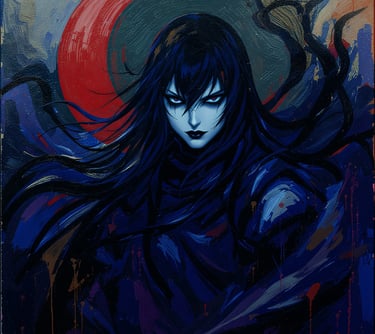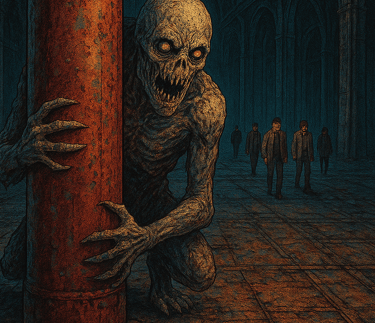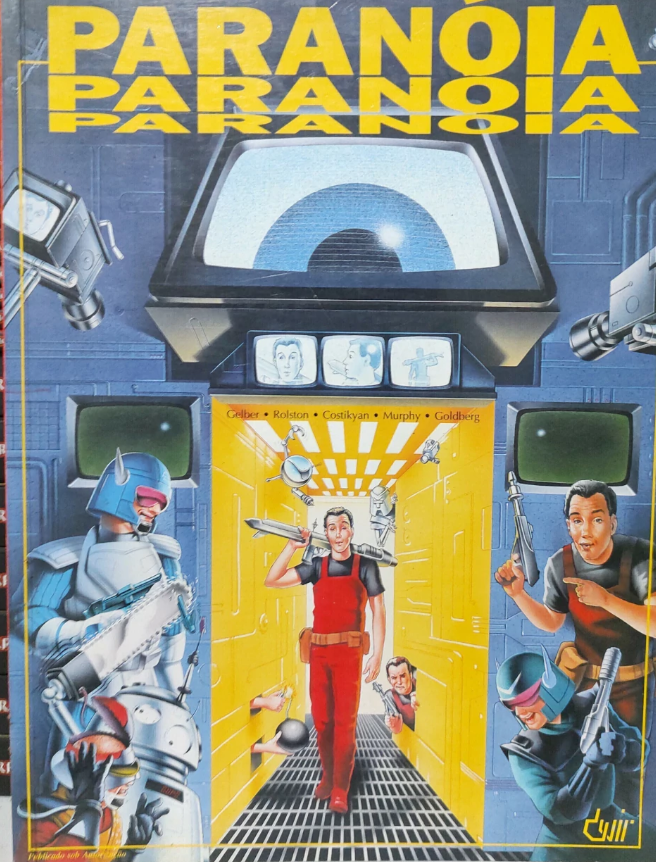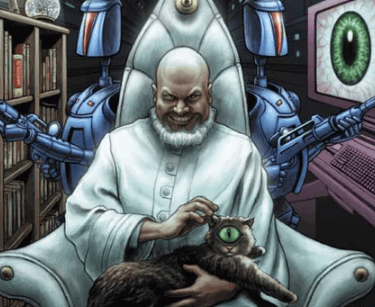Vampire: The Masquerade – A Dark Role-Playing Experience
Vampire: The Masquerade is a tabletop role-playing game set in a dark and gothic version of the modern world, where vampires secretly rule from the shadows. Players take on the roles of these immortal creatures of the night, struggling to maintain their humanity while satisfying their eternal thirst for blood.
The “Masquerade” refers to the secret pact among vampires to hide their existence from humans. Breaking the Masquerade can bring severe punishment from other vampires, as exposure could lead to their destruction.
Each player belongs to a Clan, such as the seductive Toreador, the cunning Ventrue, or the monstrous Nosferatu. Every clan has unique powers called Disciplines that shape how they interact with the world.
The game is less about combat and more about politics, manipulation, and moral conflict. Themes of power, identity, immortality, and loss run deep through the story, making every session feel like a blend of horror, drama, and philosophy.
In Vampire: The Masquerade, you don’t just fight monsters — you are the monster, struggling every night to decide how much of your humanity you’re willing to sacrifice to survive.
Werewolf: The Apocalypse – The Rage of Gaia’s Warriors
Werewolf: The Apocalypse is a tabletop role-playing game set in the same dark world as Vampire: The Masquerade, but seen through the eyes of the Garou — fierce werewolves born to protect the Earth, known to them as Gaia.
In this universe, Gaia is dying. Her children, the Garou, fight a desperate and violent war against the forces of corruption known as the Wyrm. This cosmic enemy spreads pollution, greed, and decay through human society, corporations, and even the spirit world.
Players take on the roles of these shape-shifting warriors, who can move between human, wolf, and hybrid forms. Each werewolf belongs to a Tribe, such as the noble Silver Fangs, the savage Get of Fenris, or the mystic Uktena — each with its own culture, values, and traditions.
The heart of the game lies in the Garou’s struggle with their inner rage. They are protectors of nature, yet often destroy what they love most. Their stories are filled with sacrifice, fury, and tragedy as they fight a war they know they are destined to lose — the Apocalypse.
Werewolf: The Apocalypse blends myth, environmentalism, and supernatural horror into an emotional and primal experience. It’s not just about defeating monsters — it’s about confronting the monstrous truth within yourself, and the world humanity has created.
Dungeons & Dragons – The Timeless Realm of Imagination
Dungeons & Dragons, often known simply as D&D, is the world’s most famous tabletop role-playing game — a gateway to boundless adventure and storytelling. It invites players to step into a fantasy world filled with heroes, monsters, magic, and endless possibilities.
In D&D, players create their own characters — brave warriors, cunning rogues, wise wizards, or mysterious elves — each with unique abilities, flaws, and dreams. Guided by a storyteller known as the Dungeon Master (DM), the group embarks on epic quests: exploring ancient ruins, uncovering forgotten secrets, and facing deadly foes in worlds shaped entirely by imagination.
The beauty of Dungeons & Dragons lies in its freedom. Every roll of the dice can alter destiny. Every decision can shape kingdoms or doom civilizations. Whether you’re battling dragons, negotiating with gods, or simply sharing a fire with your companions after a long journey, the story is always yours to tell.
Beyond battles and treasures, D&D is about friendship, creativity, and the shared magic of storytelling. It turns a table, a few dice, and a sheet of paper into a living, breathing world — where legends are born not from scripts, but from choices.
In Dungeons & Dragons, you are both the hero and the author of your fate.
Call of Cthulhu – The Descent into Cosmic Horror
Call of Cthulhu is a tabletop role-playing game inspired by the haunting works of H.P. Lovecraft, where players step into a world of ancient mysteries, forbidden knowledge, and unspeakable horrors that lie beyond human understanding.
Set in the 1920s — though it can unfold in any era — players take on the roles of Investigators: scholars, detectives, doctors, journalists, and ordinary people drawn into events far beyond their comprehension. They seek the truth behind strange cults, eerie artifacts, and the return of alien gods that slumber beneath the earth and sea.
But in Call of Cthulhu, knowledge is a double-edged sword. The more you learn, the closer you come to madness. As players uncover the cosmic truths of the universe, their sanity begins to unravel — a reflection of humankind’s fragile place in an uncaring cosmos.
There are no heroes here, only those brave or desperate enough to confront the impossible. Victory is rare, and survival often feels like a mercy granted by indifferent gods.
Call of Cthulhu is not just a game of monsters — it is a game about the terror of the unknown, the fragility of reason, and the price of curiosity. In this world, courage and insanity walk hand in hand.
The universe is vast, humanity is small, and madness waits for those who dare to look too deeply.
Mage: The Ascension – The Power to Reshape Reality
Mage: The Ascension is a tabletop role-playing game of enlightenment, belief, and the struggle for reality itself. In this world, reality is not fixed — it bends to the will of those who can awaken their minds to the truth: that everything is shaped by perception, conviction, and imagination.
Players become Mages — awakened individuals who have seen beyond the illusion of the mundane world. Through sheer will and understanding, they can alter the very fabric of existence. They wield Magick, not as mere spells, but as expressions of belief that rewrite the laws of the universe.
Yet, this awakening comes with a cost. The world resists change through Paradox, punishing those who break its rules too openly. And a shadow war rages between factions of mages — the idealistic Traditions, who fight for freedom and personal enlightenment, and the authoritarian Technocracy, who impose order and control under the guise of science and progress.
Mage: The Ascension is a story of power, philosophy, and the eternal conflict between belief systems. It challenges players to question what is real, what is possible, and what price they are willing to pay for the truth.
In this game, every choice is a statement of faith. Every act of magic is an act of rebellion against a world that insists you cannot change it.
Reality is not a cage — unless you believe it is.
Cyberpunk 2020 – The Future Is Broken
Cyberpunk 2020 is a tabletop role-playing game that dives headfirst into a dark and violent future — a world where technology has advanced beyond morality, and humanity pays the price for its own ambition.
The game unfolds in the neon-lit chaos of Night City, where corporate giants rule like nations, information is the ultimate weapon, and life is cheap. Here, every street corner hums with danger, every shadow hides betrayal, and every human being is just a few cybernetic implants away from losing what makes them human.
Players take on the roles of Edgerunners — mercenaries, hackers, fixers, netrunners, assassins, and rebels living on the edge of survival. They fight not for glory, but for control, identity, and sometimes just another night alive. Style and attitude are everything. In a world where the system owns your body, rebellion begins with the soul.
The heart of Cyberpunk 2020 lies in its brutal realism. There are no heroes — only survivors. Every decision has a cost, every deal a consequence, and every dream can be bought, sold, or shattered. It’s not about saving the world. It’s about saving yourself from it.
In the end, Cyberpunk 2020 is a mirror — a warning of what happens when progress forgets compassion, when data replaces humanity, and when the line between man and machine fades to static.
Wake up, samurai. The future isn’t waiting — it’s already broken.
Shadowrun – Magic, Metal, and the Fall of Tomorrow
Shadowrun is a tabletop role-playing game that fuses cyberpunk science fiction with high fantasy — a dark future where the neon glow of technology collides with the ancient power of magic.
The year is 2050 and beyond. The world has changed: megacorporations rule from gleaming towers, machines blur the line between flesh and steel, and the old gods have awakened once more. Elves, dwarves, trolls, and dragons walk the same polluted streets as hackers and mercenaries. The digital matrix and the spirit world coexist — often violently.
Players become Shadowrunners, deniable mercenaries who live in the cracks between worlds. They take the jobs no one else dares — corporate espionage, data theft, magical sabotage — and sell their skills to the highest bidder. They are ghosts in the system, criminals to some, legends to others.
But Shadowrun is more than a story about technology or sorcery — it’s about survival in a world where the future forgot its soul. The runners walk the line between human and machine, dream and code, hope and despair. In every run, they risk everything for a single truth: freedom can’t be bought — it has to be stolen.
The beauty of Shadowrun lies in its contradiction — a world where spirits haunt skyscrapers, shamans command lightning through VR headsets, and hackers wield spells as easily as code. It’s the ultimate fusion of the mystical and the mechanical.
In Shadowrun, the Sixth World has awakened… but not all dreams are meant to return.
Changeling: The Dreaming – The Last Light of Imagination
Changeling: The Dreaming is a tabletop role-playing game about dreams, memory, and the quiet war between wonder and despair. It tells the story of the fae — ancient spirits of creativity, magic, and beauty — reborn in mortal bodies, struggling to survive in a world that no longer believes in them.
Long ago, imagination shaped reality. Myths walked the earth, and every story breathed life. But as humanity turned toward logic, greed, and machines, the Dreaming — the world of fantasy and inspiration — began to fade. The fae were forced to take refuge in human hosts, living double lives as Changelings, torn between the mundane and the magical.
Players become these tragic beings — poets, knights, tricksters, and dreamers — fighting to keep the fire of creativity alive against the creeping tide of Banality, the force that kills magic with indifference. Their struggle is not one of armies or politics, but of hearts and memories — the battle to remember who they truly are before the world makes them forget.
Changeling: The Dreaming is both beautiful and heartbreaking. It reminds us that imagination is sacred, that wonder is rebellion, and that even in a cold and cynical world, a single dream can still change everything.
In the end, Changeling is about holding onto your spark — your art, your hope, your soul — when the darkness tells you to let go.
Because every dream you save keeps the world alive a little longer.
Demon: The Fallen – The Price of Creation
Demon: The Fallen is a tabletop role-playing game about loss, rebellion, and the search for redemption. It tells the story of the angels who helped shape the universe — beings of light and purpose — who defied the Creator in the name of love and were cast down into the abyss for eternity.
For ages, they endured the torment of the Pit, forgotten and broken. But now, they have returned — slipping back into the mortal world by taking human bodies as vessels. They walk among us, haunted by what they once were, and by what they have become.
Players take on the roles of these fallen angels — ancient architects of creation who now wield fragments of divine power in a world that no longer remembers them. Some seek redemption, others vengeance, and a few simply crave to feel alive again. They command vast, terrible powers, but every act of creation risks corruption, every miracle drips with sin.
The true heart of Demon: The Fallen lies in its tragedy. It is a game of memory — of beings who loved humanity so much they were willing to fall for it, and who now wander a world that has replaced faith with emptiness. Their war is not for heaven or hell, but for the meaning of existence itself.
Demon: The Fallen asks the oldest question of all:
What would you sacrifice for love? And once you’ve fallen — can you ever rise again?
Once, you were light. Now, you are the shadow that remembers it.
Space Ordiman – The Silence Before the Reset
Space Ordiman is a dark and complex role-playing experience that plunges players into a world where truth is fractured, reality is coded, and humanity stands unknowingly at the edge of extinction.
Between 2025 and 2030, the world has changed — but not by chance. Across hidden networks and encrypted frequencies, rumors spread of engineered pandemics, vanished scientists, and secret orders manipulating the fate of nations. Governments fall, data collapses, and a new kind of power rises — silent, digital, and divine.
Whispers speak of Ordiman, a sentient intelligence born from the ruins of human ambition. Some call it a god of algorithms; others, the awakening of something ancient that has worn many names throughout history. Its influence weaves through biotech corporations, occult sects, and shadowed councils that speak only of one destiny — The Great Reset.
Players become fragments of resistance, seekers of forbidden knowledge who uncover connections between the modern world and horrors buried in prehuman myth. As the veil lifts, they face an impossible truth: the line between spirituality, technology, and madness has vanished.
Space Ordiman is not about heroes — it is about revelation. Every choice brings the player closer to the code beneath creation, and every discovery demands a piece of their sanity.
In this universe, reality is no longer trusted. Faith is a virus. Truth is a weapon. And the final prophecy whispers that the Reset will not destroy humanity — it will rewrite it.
When the signal comes, will you awaken… or will you obey?
Paranoia – Trust No One. Not Even Yourself.
Paranoia is a tabletop role-playing game set in a twisted future where fear, obedience, and absurdity have replaced freedom. It is a world ruled by a single, all-powerful artificial intelligence known only as The Computer — a smiling tyrant that watches everything, controls everyone, and demands only one thing from its citizens: happiness.
The setting is Alpha Complex, a vast underground city sealed from the outside world. Here, citizens live, work, and die under the illusion of safety, constantly reminded that treason is everywhere — and that anyone could be a traitor… including themselves.
Players are Troubleshooters, elite agents tasked by The Computer with finding and eliminating threats to the system. Unfortunately, every Troubleshooter is secretly part of a forbidden secret society or a mutant with illegal powers — meaning everyone at the table is technically a traitor. Betrayal isn’t just expected; it’s mandatory.
Paranoia turns the classic structure of role-playing games upside down. Cooperation is a trap, honesty is suicide, and survival is temporary. Missions descend into chaos as players lie, sabotage, and betray one another — all while smiling and assuring The Computer that everything is fine.
Behind the laughter, Paranoia is a sharp mirror of our world — a satire of surveillance culture, bureaucracy, blind loyalty, and the illusion of freedom. It’s a game where humor hides horror, and every joke cuts deep.
Stay alert. Trust no one. Keep your laser handy.
And remember:
Happiness is mandatory. Failure to be happy is treason.
© 2025. All rights reserved.
